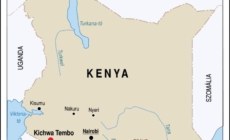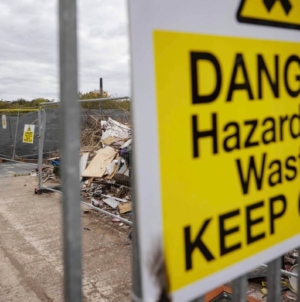-
New EPA rule could allow more use of toxic chemicals - 9 mins ago
-
4 Takeaways From the Blue Jays’ World Series Game 4 Win over the Dodgers - 11 mins ago
-
Budapest Seeks Alliance with Czech Republic and Slovakia to Challenge EU’s Ukraine Policy - 33 mins ago
-
Sir Anthony Hopkins on Acting, Sobriety and Self-Acceptance - 49 mins ago
-
Kenya Plane Crash Families to Receive Support from Government - about 1 hour ago
-
Map Shows China Sending Ships Around US Ally - about 1 hour ago
-
'Biggest start of my career' – Shane Bieber on facing Shohei Ohtani, Dodgers in World Series Game 4 - 2 hours ago
-
WWE Vacates Another Championship Due to Injury - 2 hours ago
-
Bo Bichette on Blue Jays’ Game 4 World Series win: ‘Whatever it takes’ 🏆 King of the Diamond - 2 hours ago
-
How to Watch Clippers vs Warriors: Live Stream NBA, TV Channel - 3 hours ago
Canada is likely to lose its measles elimination status. The U.S. could be next.
Canada is on track to lose its measles elimination status as an outbreak that began a year ago continues to spread.
The United States could follow in the coming months.
The Canadian outbreak began in October 2024 in New Brunswick, a province on the country’s eastern seaboard. As of Tuesday, more than 5,000 cases had been reported. Two babies have died.
Canada eliminated measles in 1998. The U.S. followed two years later, in 2000.
There are multiple criteria for losing an official measles elimination status, including the declines in vaccination rates observed in both countries.
But the most significant factor is having ongoing measles transmission for a full year.
“To really say that a country has lost the status, it takes 12 months of continuous transmission with the same genotype and the same strain of the virus,” said Daniel Salas, an immunization expert with the Pan American Health Organization (PAHO).
Canada hit that mark this week.
PAHO, which is part of the World Health Organization, is the group charged with determining whether a country in North, South or Central America has eliminated measles. It is set to convene next week in Mexico City to analyze measles data through the end of October.
If a country loses its measles elimination status, “a corrective action plan will be requested to guide efforts to regain elimination,” according to a PAHO spokesman.
It’s highly unlikely that the U.S. will lose its elimination status during the upcoming meeting, Salas said, because the ongoing outbreak began in January.
In the U.S., at least 1,618 measles cases have been logged so far this year, according to the Centers for Disease Control and Prevention. The outbreak that threatens the U.S. elimination status began in West Texas in late January. More than 800 people in Texas and New Mexico have been infected, and the outbreak has spread to other states. Three people died, including two young girls.
It will take time to analyze whether ongoing spread in Arizona, Utah and South Carolina is linked to the West Texas outbreak.
The elimination of measles in the U.S. and Canada “was a huge achievement,” Salas said. “When we say that we sustain the elimination as a region, we are also acknowledging each country for their efforts.”
The possibility of elimination status in Canada is “a wake-up call that we need to do better in vaccinating our general public so we don’t have outbreaks like this,” Dr. Isaac Bogoch, an infectious diseases expert at the University of Toronto, said in an interview this week with CTV Television Network in Toronto.
The measles-mumps-rubella (MMR) vaccine is extraordinarily effective, according to the CDC. Two doses, usually given around ages 1 and 5, are 97% effective at preventing infection.
Source link































